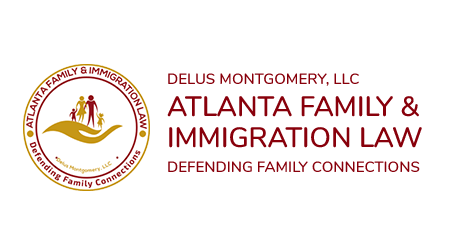THE IMPACT OF COVID-19 ON EMPLOYMENT IMMIGRATION LAW: LESSONS LEARNED AND BEST PRACTICES
The COVID-19 pandemic has had a profound impact on various aspects of our lives, including the field of employment immigration law. As countries worldwide implemented travel restrictions and lockdown measures to contain the spread of the virus, navigating the complexities of employment-based immigration became even more challenging. In this article, we will explore the lessons learned and best practices that have emerged in the wake of the pandemic.
Lesson 1: Adaptation to Changing Policies and Procedures
The pandemic has highlighted the importance of remaining up-to-date with rapidly evolving immigration policies and procedures. Governments worldwide have implemented various measures, such as travel bans, visa suspensions, and changing entry requirements, which have directly affected employment immigration. It is crucial for employers, employees, and immigration attorneys to stay informed about these changes and adapt their strategies accordingly.
Best Practice: Establishing a close relationship with an experienced immigration attorney who keeps track of policy updates and can provide timely guidance is vital. Employers should regularly communicate with their immigration attorney to ensure compliance with the latest regulations and to develop contingency plans.
Lesson 2: Remote Work and Virtual Solutions
The pandemic has necessitated a shift towards remote work and virtual solutions in many industries. This shift has also influenced employment immigration processes, with many countries implementing remote filing, online interviews, and digital document submission. This virtual transformation has opened up opportunities for more flexible and efficient immigration procedures.
Best Practice: Employers and immigration attorneys should familiarize themselves with the virtual options available in the immigration process. Utilizing secure digital platforms for document exchange and exploring virtual interview options can streamline the immigration process and reduce delays.
Lesson 3: Delays and Backlogs
As immigration offices and consulates faced closures, reduced staffing, and operational challenges, significant delays and backlogs became inevitable. This has resulted in extended processing times for visa applications, work permits, and other immigration-related requests. The pandemic has highlighted the importance of proactive planning and the need to account for potential delays in employment immigration processes.
Best Practice: Employers and employees should start the immigration process well in advance to allow for potential delays. Engaging an immigration attorney who can navigate the system efficiently and keep track of application statuses can help minimize disruptions and mitigate the impact of delays.
Lesson 4: Flexibility and Adaptability
COVID-19 has underscored the need for flexibility and adaptability in employment immigration. The pandemic has forced companies to adjust their business models, including their workforce structure and the ability to relocate employees across borders. Employers and immigration practitioners must remain agile and ready to adapt to changing circumstances.
Best Practice: Employers should proactively evaluate their immigration strategies and explore alternative immigration options, such as intra-company transfers or remote work arrangements. Developing contingency plans and considering the impact of changing immigration policies on workforce mobility can help mitigate potential disruptions.
Lesson 5: Communication and Support
Effective communication and support have proven to be invaluable during times of crisis. The pandemic has brought to light the importance of maintaining open lines of communication between employers, employees, and immigration attorneys. Clear and timely communication can help address concerns, manage expectations, and ensure all parties are working towards a common goal.
Best Practice: Employers should maintain regular communication channels with their employees and immigration attorneys, providing updates on the status of immigration processes, policy changes, and any potential impact on employment. Similarly, employees should communicate any changes in their circumstances that may affect their immigration status promptly.
Conclusion
The COVID-19 pandemic has presented numerous challenges for employment immigration law. However, it has also highlighted important lessons and best practices for navigating this complex landscape. Adapting to changing policies, leveraging remote work and virtual solutions, accounting for delays and backlogs, remaining flexible and adaptable, and prioritizing effective communication and support are key to successfully managing employment immigration during times of crisis. By implementing these lessons learned and best practices, employers and immigration practitioners can navigate the challenges posed by the pandemic while ensuring compliance with immigration regulations and maintaining the mobility of their workforce.
As the world continues to recover and adapt to the post-pandemic era, it is crucial to remain vigilant and proactive in addressing the evolving landscape of employment immigration law. By staying informed, embracing digital solutions, anticipating delays, remaining flexible, and fostering open communication, employers and employees can navigate the complexities of immigration processes with greater ease and efficiency.
At Atlanta Family & Immigration Law, we understand the unique challenges faced by businesses and individuals in the realm of employment immigration. Our team of experienced immigration attorneys stays up-to-date with the latest policies and procedures to provide comprehensive and tailored guidance to our clients. Contact us today to ensure a smooth and successful employment immigration experience in these unprecedented times. Together, we can overcome the obstacles and build a stronger future.
Atlanta Family & Immigration Law. All rights reserved.
This website has been built to be accessible for all users. If you experience any difficulty in accessing this website, please contact us for assistance.





